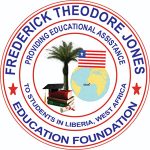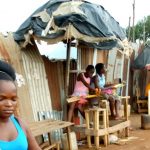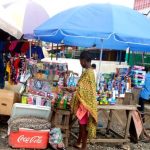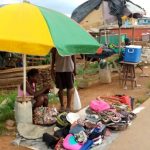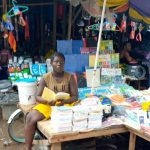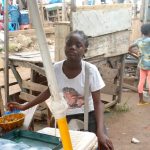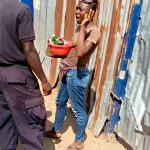Stories About Liberia
Contributors:
Dr. Mariah Seton, Ph.D.
Reverend Tokunboh E. Lawrence, BA, BSc. MA
Mrs. Cecelia Jones-Wilson, BBA, MIT
Mr. William Gibson (Courtesy Photos)
Liberia is located sub of the Sahara on the west coast of Africa. It borders Sierra Leone, Guinea, and the Ivory coast. The country was founded in the mid 1800’s. The people of Liberia are fluent in their various dialects and English is the official language. Liberia has a challenging and low level of learning system. Some of the reasons for the lack of high-quality education are due to poverty, hunger, violence, armed conflicts of years of civil war, and unequal opportunities.
Many families have migrated to the city in search of a better life and, oftentimes, the young ones become the bread winners in the city. Parents are unable to pay tuition due to disadvantages. On the other hand, when the few well-off citizens visit the rural areas, they make promises to parents of under privileged children that they will take them to the city, be responsible for their well being and educate them, only to abandon these youngsters. Students are put out of school for lack of tuition, school supplies, books, and parental support. Most of these students are in middle to high school and will reach adulthood without the basic skills needed to be productive citizens. Also, many young children are out of school and unable to gain access to tutorial services.
In viewing these disparities in learning, the Frederick Theodore Jones Foundation, designed to financially assist students in Monrovia and its environs to achieve their educational goals, will provide financial assistance to students which will overall benefit the society.
Over the years, several issues affected the education sector in Liberia resulting to massive destruction of the sector and immense challenges. To name a few such as the Liberian Civil War, Unsafe Environment, and Gender Based Violence (GBV).
The complete destruction of the country’s infrastructure affected our people’s education capacities. Regardless of the varies help from donors and international NGOs, the damage to the country was enormous and disrupted all sectors. There were several areas chosen to be addressed in the rebuilding process of the country. Because of the wide arrays of identified needs, the education sector was not fully funded and up to present lacks the ability to compete with other countries in the region.
Findings:
- Upon visiting many counties in Liberia, I observed that girls and boys dropped out of school because of lack of financial support. Girls were mostly affected. They got pregnant and were given up for marriage and could not complete high school.
- I personally interviewed some girls and realized that they had dropped out of school because they had absolutely no funds for tuition and school supplies. Some were engaged in relationships with men that could be their fathers for financial assistance. Others engaged in petite trade with whatever money given to them to maintain themselves.
- In 2016, I mobilized few friends to help about 15 girls with schooling and providing a monthly allowance of $20 to address some immediate personal needs. It was successful.
- It is necessary to have as many groups as possible like churches, organizations, local NGOs, and foundations, to assist in promoting education in Liberia and to enhance the quality of life for the student population. Many schools in Liberia are privately owned and that is why it is so essential to assist students with tuition and other school supplies. The student population has grown so much that there are not enough public schools to meet the demand of the student population giving rise to more and more private schools.
- I have personally talked to people I know that have 4 to 5 children and only one or two of their children are in school because they cannot afford tuition and fees. I spoke to 2 women in February 2021. One has two boys, and the other lady has three girls. These children were all school age and the lady with the two boys was unable to enroll her sons in school. The reason was that she is trying to feed her family on the little money she has. The lady with the three daughters had only one in school, the oldest who is 15 years old. The other two daughters were at home. She also did not have enough money from the little petite trade she was doing, most especially, when they must eat and pay rent. The need for financial assistance to students in Liberia is dire.
Progress has been made in developing and restructuring the educational system in Liberia since the end of the civil war. Schools are being rebuilt and the number of students enrolled are increasing. However, there are still a considerable number of students not enrolled in school because of financial challenges. Many schools lack the resources needed to operate at the required level resulting in compromised learning.
In addition to the traditional classroom learning, I think the country is now at a crossroad where other learning opportunities can be explored nationwide.
- Homeschooling – Though homeschooling is probably not a tradition in the Liberian society, it can be an option if the resources are available. This is far less costly than enrolling in a public or private school. Students can study and learn what they want if they want.
- Self-Learning – Students can cover the material with study tools adapted to the capabilities of a student. As a result, students will be challenged with harder tasks and questions when a certain level is achieved. Those who experience difficulties with a subject will get the chance to practice more until they reach the required level.
- E-learning Platforms – With the help of technology, E-learning is much more affordable for people with limited budget. Hard copy books can become expensive and quickly outdated.
- Include Social and Emotional Skills – To thrive in the workplace of the future, skills such as creativity, collaboration, communication and problem-solving will become must-have competencies for future specialists as the market will see a huge increase in jobs requiring a mentioned set of skills.
Overall, we must continue to strive to provide more opportunities to students enabling them to stay in school and focus on what is important, their education!
